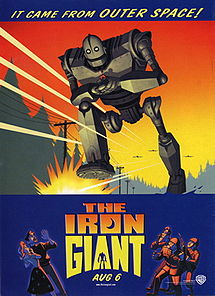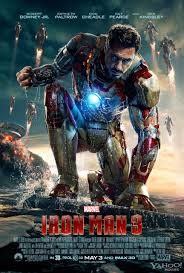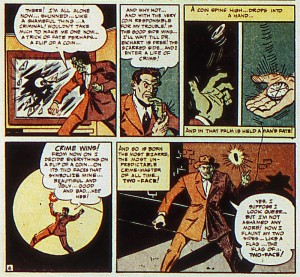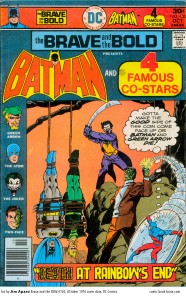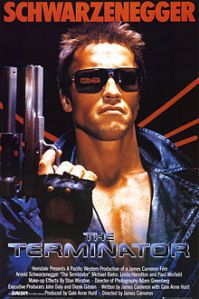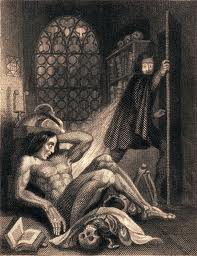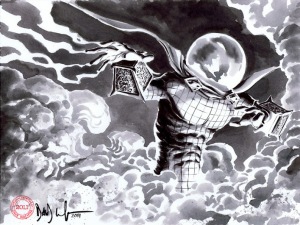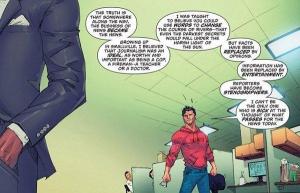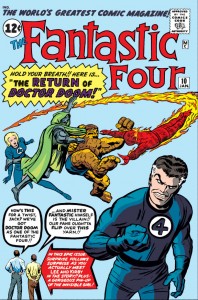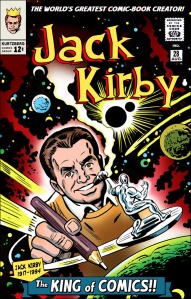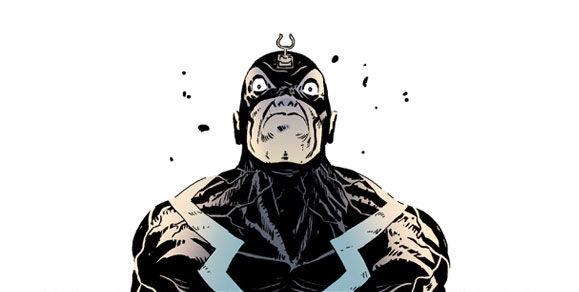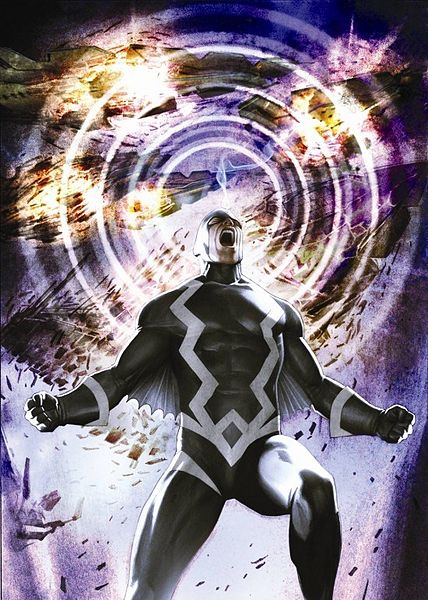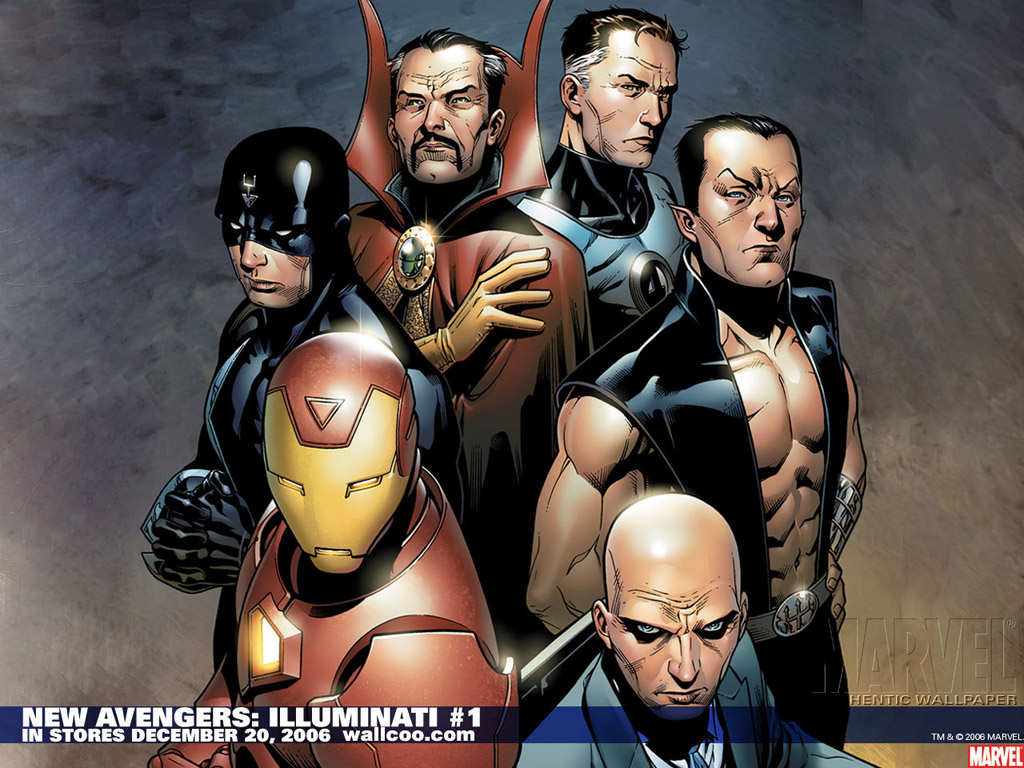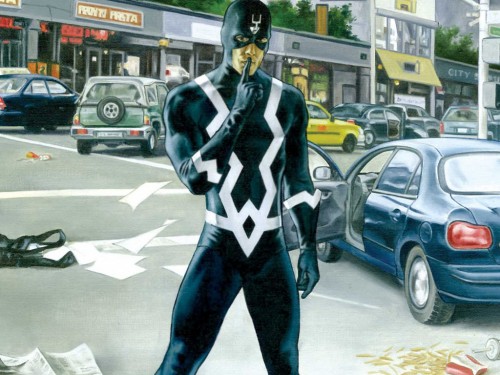Who stuck an adaptation of the 1999 cartoon The Iron Giant into the middle of Iron Man 3? Not that I’m complaining. Even The New Yorker loved it (as opposed to the formulaic explosions that bookend the movie). Robert Downey Jr.’s abrasive bromance with 11-year-old Ty Simpkins is the film’s brightest and most unexpected subplot. Though it also adds to the film’s overall incoherence. Which, again, might be a good thing. Not since Tim Burton was defining the superhero blockbuster in a single bound have we gotten such a (to use Tony’s term) “hot mess” of a movie.
Even before the young Mr. Simpkins’ entrance, Iron Man 3 was straining its thematic rivets. Aside from the obligatory bad guy machinations, the story scaffold looks like your standard marriage plot variety. Yes, Tony and Pepper are already together at the start, not married exactly, but at least, you know, whatever. Tony quickly overturns the domestic bliss by sending one of his remote control drones to romance his girl while he finishes some work in the lab (anyone notice that Shane Black and Drew Pearce lifted the scene from Watchmen?). Tony is literally phoning it in, and Pepper’s stuck with his empty shell.
Soon the robot drone is jumping into bed with them (yep, Watchmen again) and Pepper is packing. Next thing she’s climbing inside some other super-genius’s brain, and Tony’s pal warns him he’s going to lose her if he doesn’t change. Which he does. When things start exploding, he remote controls that robot suit to encase her instead of himself. It’s actually a bit poignant—especially when Iron Pepper returns the favor by shielding him a moment later.
The weird thing though? We’re only about thirty minutes in. Sure, there’s a reprise when Pepper saves him a second time at the climax, followed by the formal exploding of the Iron drones in evidence of Tony’s now focused devotion to Pepper. He even chucks his cyborg heart over a cliff in the epilogue.
But romance is not the machine driving this movie. In addition to becoming a less dickish boyfriend, Tony has to get over the PTSD brought on by his near-death in The Avengers. This is fairly new terrain for a superhero plot and is one of several ways the specter of Afghanistan haunts the movie. The platoon of regenerative thugs are all maimed soldiers who literally grow back lost limbs. Osama Bin Laden is played by the Mandarin—who is played by a Baptist minister—who is played by a washed-up British actor—who’s played by Ben Kingsley—who most of us remember best as Gandhi. Terrorism, it turns out, is not the problem. It’s the War on Terrorism. Which might explain why the President looks like George Bush and not Barack Obama—especially when he’s being rescued by Don Cheadle. So when Tony blows up his armada of Iron Drones, he’s also saying goodbye to a military policy a lot of Americans would like to see go too.
Except when exactly is it that Tony gets over all that pesky post-traumatic stuff? He’s been tinkering in his basement for months, so why does one Home Depot shopping spree turn him into a McGuiver-esque 007? And what does it mean that he promises Pepper he’ll catch her and then can only watch with us as she plummets to her (apparent) death? And if both the romance plot and the foreign policy allegory agree on vanquishing all that deadly hardware, why does the newly superpowered Pepper need an extra boost of tech to put the bad guy down a final time?
Maybe this is where Ty Simpkins and The Iron Giant come in.
If you’ve not seen the Brad Bird movie, I highly recommend it. My daughter adored it when she was four. A mal-functioning robot crashlands in smallville where a father-less boy hides it in his shed while he and a wacky father-figure partner work to repair it. Sound familiar? It gets better. Like the Iron Man suit, the Iron Giant divides into semi-autonomous pieces, and the story climaxes with the self-sacrificing hero sailing into the sky to prevent a U.S. nuclear warhead from destroying the town. Which, incidentally, is also the climax of The Avengers. The Iron Giant even pays homage to the ur-superhero, Superman, who the Giant emulates to escape his programming as a soulless military machine.
But if being a less dickish boyfriend means finding your inner father figure for a half-orphan, the film mocks the tropes more than it fulfills them. This isn’t Spielberg. It’s a Spielberg parody—a particularly hilarious one. Downey and Simpkins are a comic tag-team that skewer the feel-good formula they’re only half pretending to inhabit. It’s as if we’ve crashlanded in a different movie.
But soon Tony is driving back down the main plotline, his remote control suit soon to follow. And what is it exactly that he learned during the detour? Mock sincerity. Deadpan delivery. Comic timing. All the things we loved about Tony but that no longer worked with Pepper in the room. He had to drop his defenses or lose her. All his jokes were misfires on the home front. So the kid gave him a new comic target. Simpkins replaces Paltrow as sparring partner and straight man. Iron Man is above all else a comedian. Refueled with a live audience laugh track, he’s ready to smash the bad guys again.
This all makes sense for one reason only. Iron Man isn’t Tony Stark. He’s Robert Downey Jr. Yes, Black and Pearce wrote the script, and Paramount dropped some $200 million into the budget, but the film’s structural logic isn’t animated by CGI effects. The movie only works because it’s so damn funny.
Even the post-credit Avengers 2 teaser is pure sketch comedy—Tony and Doc Banner trading barbs in a two-minute therapist routine. The material is pretty hackneyed, but these guys make you want to laugh anyway. Political commentary, character arcs, plot structure—it all melts away when you’re laughing.
Comedy is Iron Man’s real superpower.

